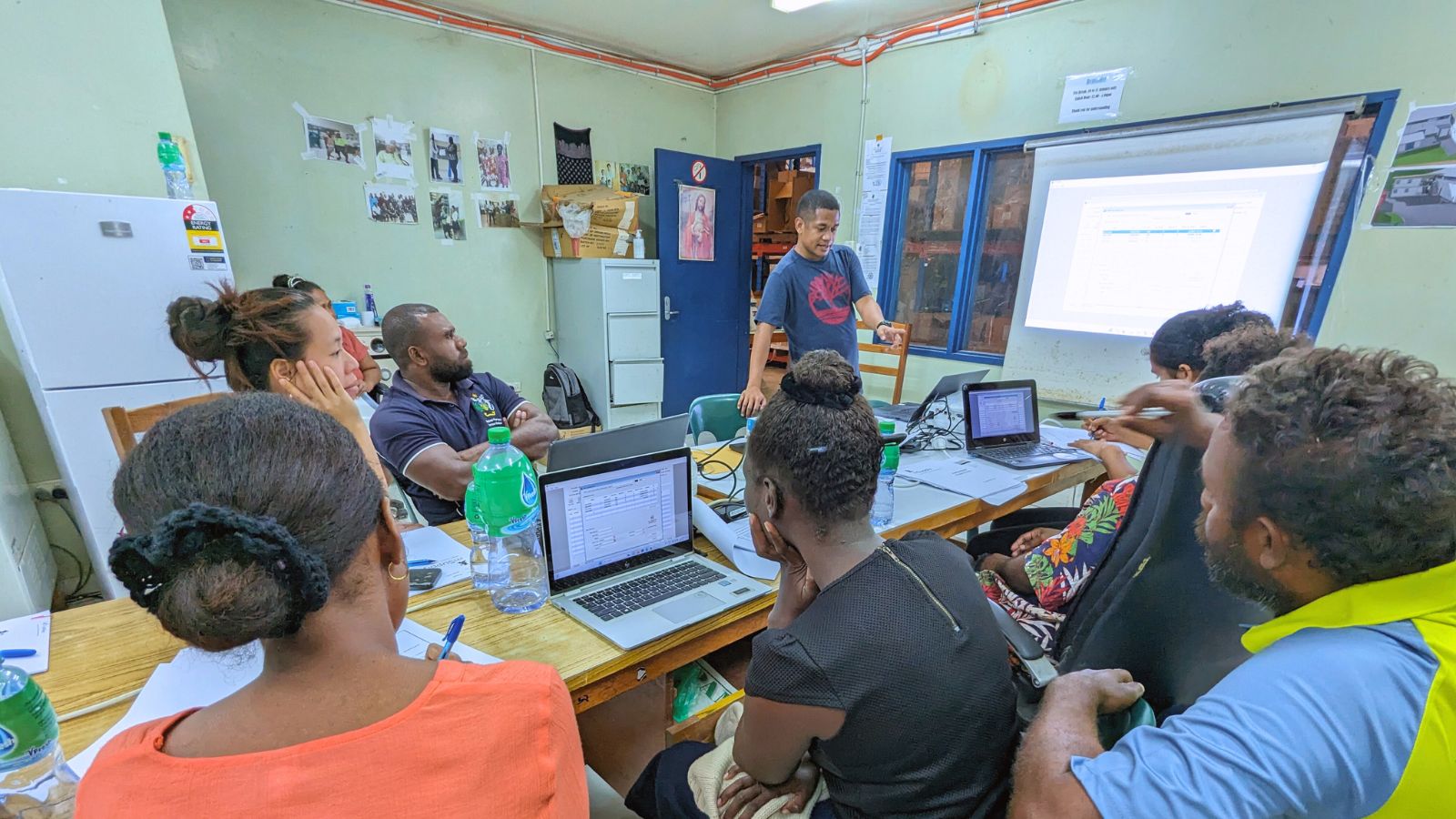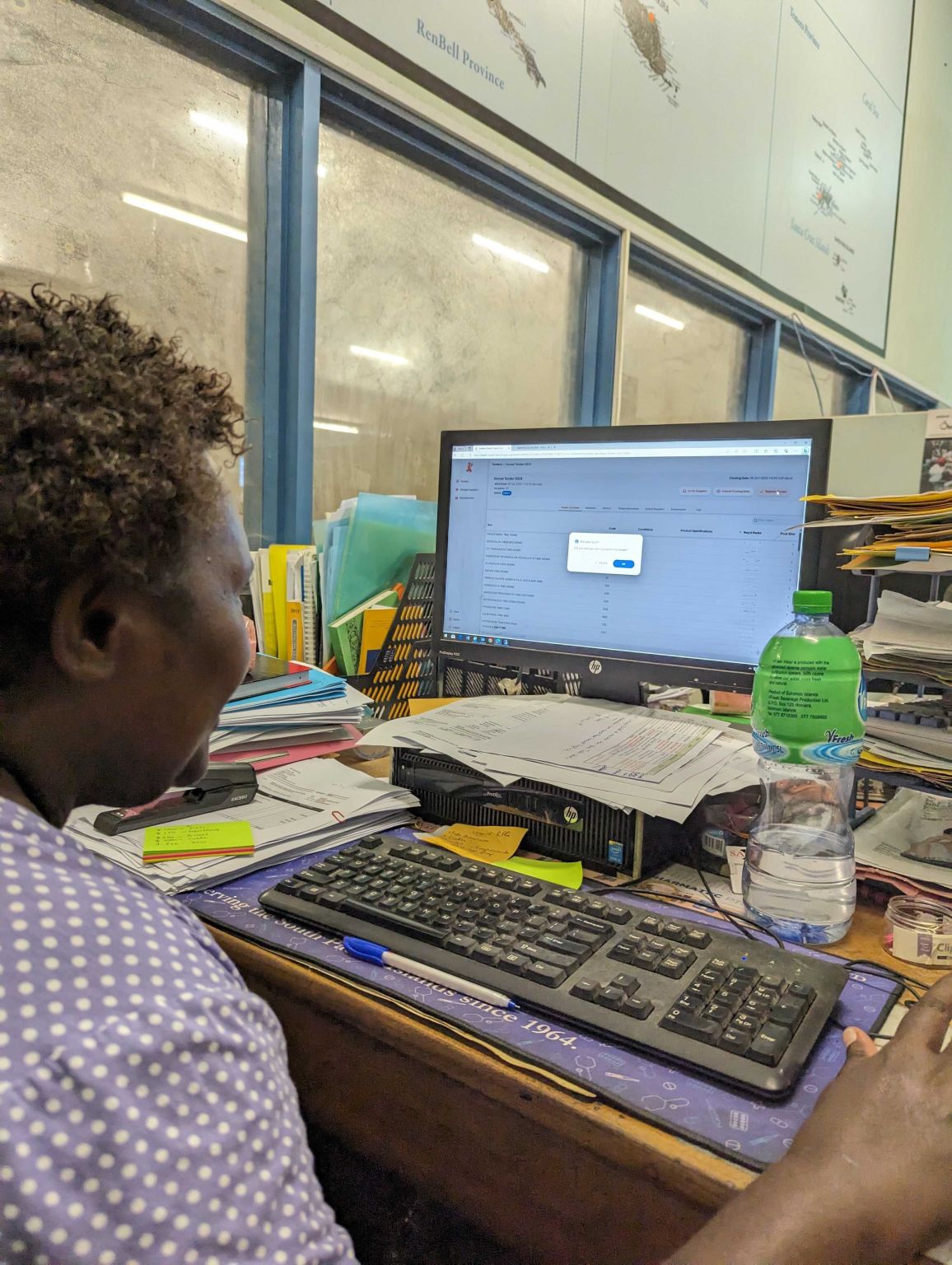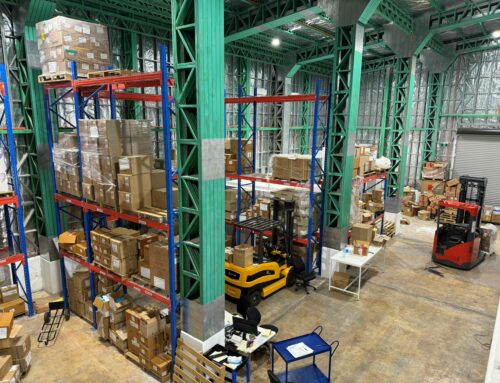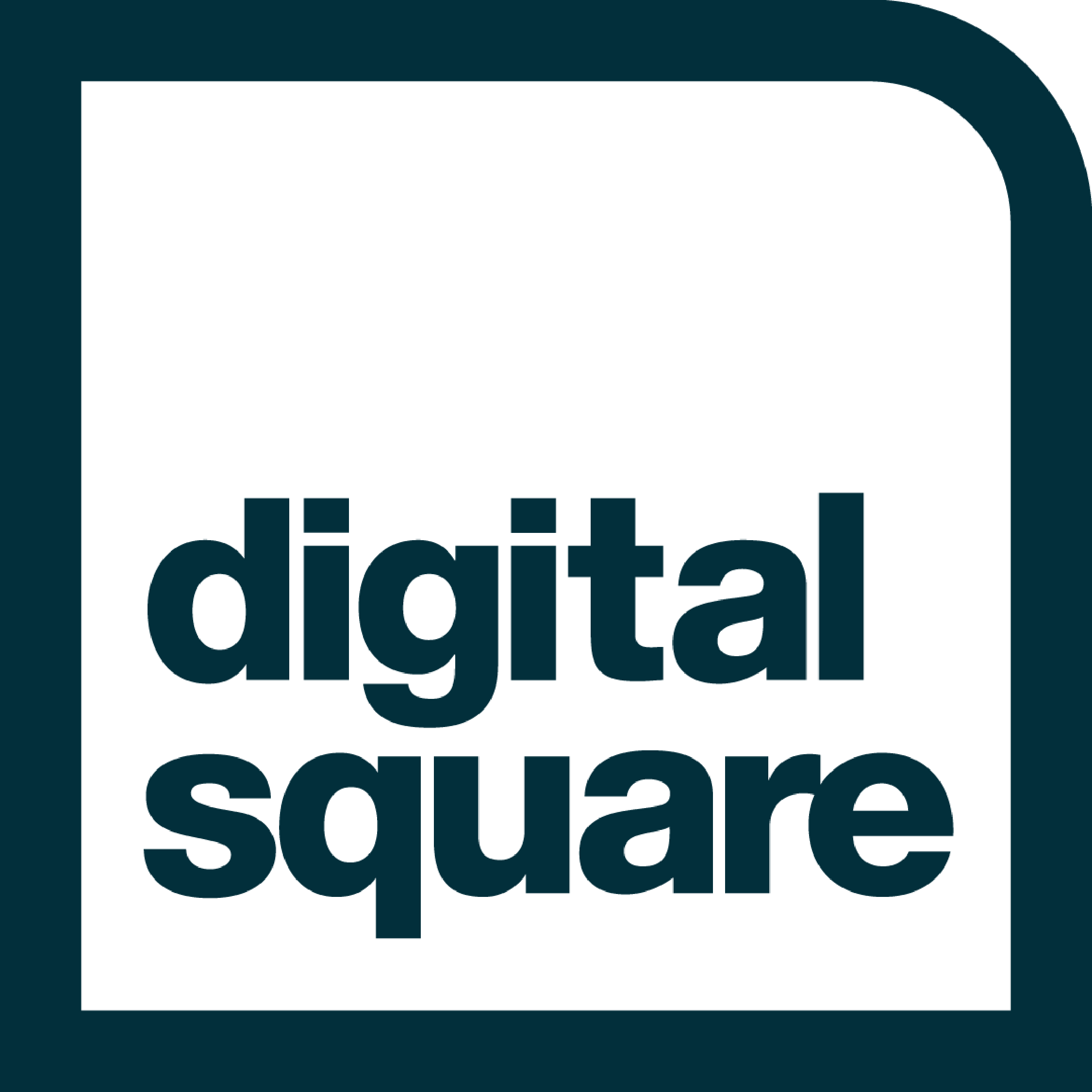Health reform in Solomon Islands with friends from Australia
Solomon Islands have reached the halfway point of an ambitious Health Supply Chain reform project that will improve the quality of healthcare and supply of essential medicines for future generations to come. Led by Solomon Islands’ Ministry of Health & Medical Services (MHMS), long-term friends from Australia, BES, were engaged to deliver the reform project funded by the Australian Department of Foreign Affairs and Trade (DFAT).
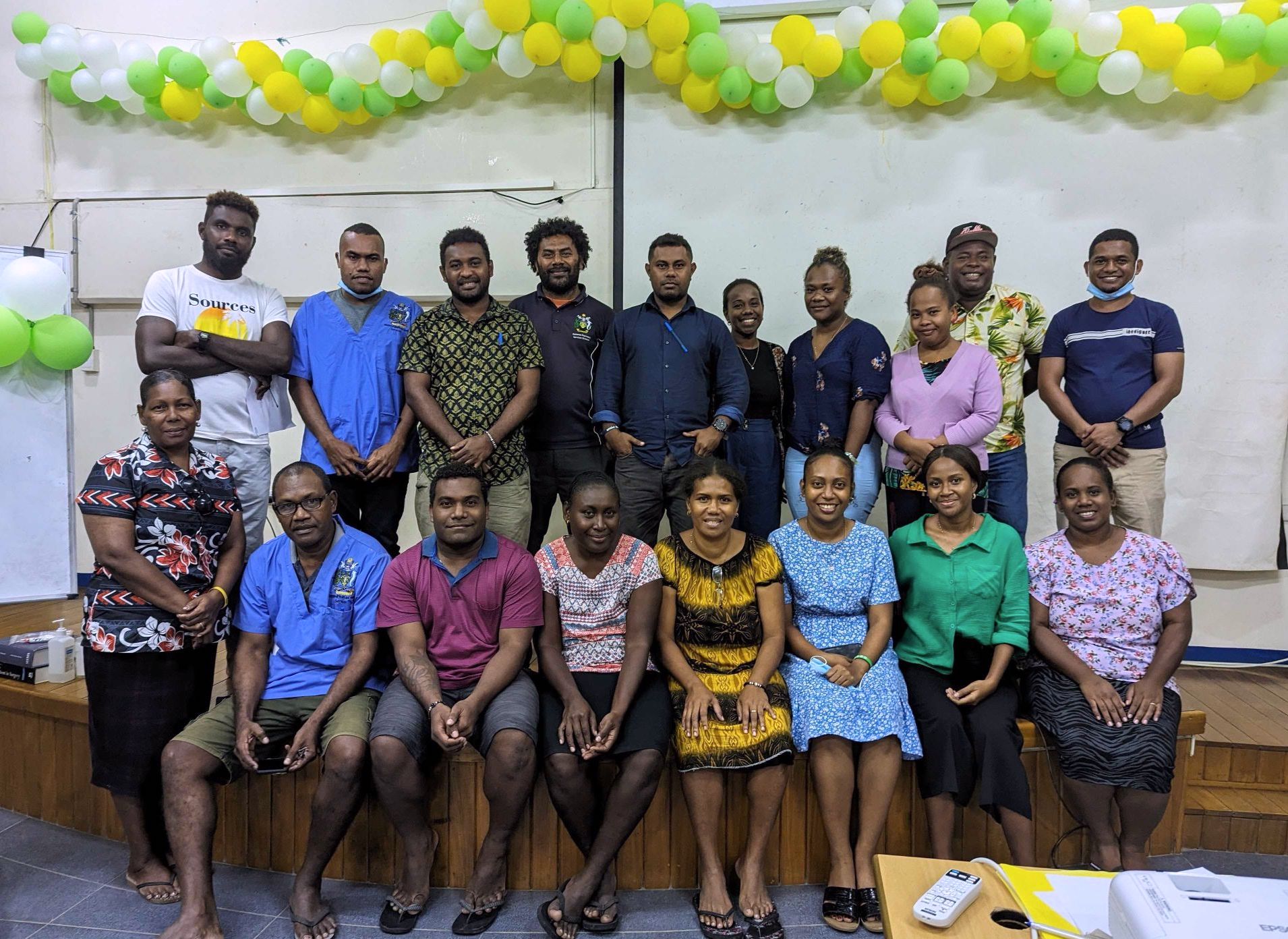
NRH Pharmacy staff in Solomon Islands with BES consultant Agusto dos Santos
Solomon Islands is a 3-hour flight northeast of Brisbane. Rich in culture, natural beauty, tropical weather, and some of the best reefs and surf breaks in the world, Solomons has six major islands and more than 900 outer islands and atolls. The population of 720,000 is young, dispersed, and multi-lingual, while the majority live in rural areas and maintain subsistence livelihoods in villages of a few hundred people.
Solomon’s health supply chain was considered strong for many years compared to other low-income, low-resource countries in the Pacific. Since 2018 however, successive shocks to the system saw a regression in performance indicators. The impacts of these were felt in frequent stockouts of essential medicines in large hospitals, warehouses, and primary health clinics.
Enter the national Health Supply Chain reform project in April 2023. The 12-month project kicked off with a review and assessment – 34 senior stakeholder meetings in fact, from Government departments within the Ministry of Health and Medical Services (MHMS), the National Medical Store (NMS), and the National Referral Hospital (NRH). No stone was left unturned! More than 150 rapid interventions and upskilling with MHMS staff was planned to re-establish the once resilient national supply chain.
Hang on, what is a health supply chain?
Health supply chains are the behind-the-scenes activities taking place to stock your pharmacy with medicine and supplies for everyone. A strong supply chain involves:
- Getting the right manufacturers and suppliers through a procurement process
- Monitoring stock levels, usage and reordering to prevent stockouts
- Deliveries; in Solomons all medicine supply is centralised through the National Medical Stores (NMS) warehouse, where it’s managed and distributed nationally:
- NMS distributes directly to the National Referral Hospital (NRH), clinics in Honiara City Council (HCC), Guadalcanal, Russell Islands, and Malaita Outer Islands, as well as every Second-Level Medical Store (SLMS)
- Second-Level stores then distribute stock within their catchment which generally cover 10-15 health clinics, most of which are located in remote areas.
- Let’s not forget transportation! Trucks, small aircraft, boats, cars, motorbikes and sometimes even by foot! Medicine and supplies reach extremely remote provinces, and often not without complication.
Marianne Tanavalu, the National Medical Supplies Procurement Manager explains that one of the good things the reform project is doing is improving timeliness and quality control in health supply procurement evaluations.
“We have standardised manufacturer names, we introduced minimum delivery periods for all items and set mandatory expiry information from all bidders to make evaluation clearer. This helps avoid uncertainty when we compare and order medical supplies. And it can reduce waste and avoid stock-outs of medicine,” said Marianne.
Photo: Marianne Tanavalu, National Medical Supplies, Procurement Manager.
Having reached the halfway point of the project, the end of the tunnel is growing brighter. In the last 6-months, health supply chain staff in Solomon Islands have shown their appetite for change and improvement, delivering several big ticket projects already, with the support of a small team of BES project staff.
#1 – Digitising procurement
In September 2023, digital procurement software ‘the Health Supply Hub’ was launched. The Hub improves bidding processes for suppliers, increases transparency and continues to help lower the cost of medicine procurement.
Solomon Islands were the second country in the world to implement the electronic Logistics Management Information System (eLMIS) mSupply, which is now used in more than 35 countries. In 2013, Solomon Islands then became the first country to use Version 1 of mSupply Mobile! So it’s no surprise Solomons continues to be at the cutting edge of supply chain innovation. But a system is only as good as the people who use it, which leads us to the next big reform.
#2 – A plan for people and processes
The Health Supply Hub came out alongside an Annual Procurement Plan focusing on the people side of procurement. The plan coordinates processes delivered by people in multiple workplaces and locations. Through its delivery, the plan has created better clarity of roles and greater collaboration between the Ministry of Health and Medical Services and the National Medical Store teams.
#3 – Upskilling through workshops and training sessions
A priority of the project was to give everyone involved in the health supply chain a chance to upskill and learn more about specialist topics. Dozens of training sessions and workshops have already been held on procurement and health supply chain management, with many more scheduled in Honiara and the provinces. Sharing ideas and experiences between workplaces – such as learning how the digital procurement systems work – have led to requests for broader, country-wide exposure to digital procurement systems that could further improve tender approval times.
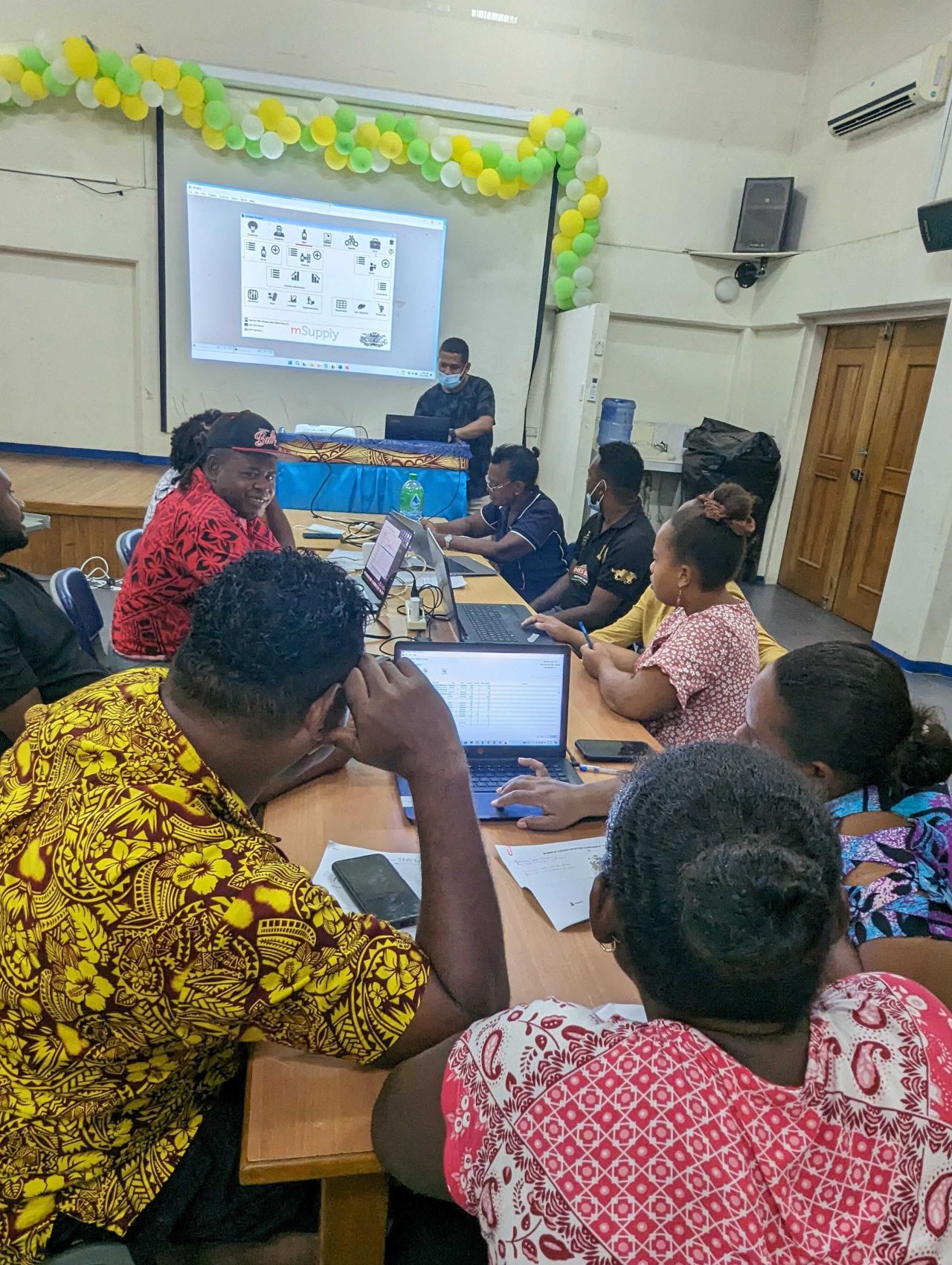
Photo: BES consultant Agusto Dos Santos runs mSupply training at the National Referral Hospital in Honiara
Workshops have also provided a space for more collaboration, where priority issues can be addressed in person; such as supporting updates to the essential medicines lists, stock distribution or revising policies and plans.
Chief Pharmacist, Solomon Bosa, thanked BES staff at the end of the National Referral Hospital training session.
“The hospital pharmacists from the Pharmacy Division have not received such comprehensive training on mSupply before. The need for data input to the supply chain systems was also useful to pharmacists working to avoid stock-outs and expiry.” said Solomon.
A long friendship
The Health Supply Chain reform project is backed by a long-held friendship between Solomon Islands and Australia. The company BES, who were engaged by MHMS and DFAT to deliver the reform project, was founded by a group of Australian pharmacists and public health experts who once called Solomon Islands home as volunteers, employees, and technical assistants. Some of the BES delivery team include former Solomons residents:
Director Michael Nunan (formerly the Chief pharmacist with the MHMS Public Pharmacy Services, and the primary healthcare pharmacy support specialist for the MHMS National Pharmacy Services, Honiara), who worked in Solomon Islands for 5 years.
Director Erin Mitchell (National training pharmacist with MHMS, pharmacovigilance pharmacist for the Solomon Islands Malaria program, and health resource officer with WHO, Honiara), who worked in Solomon Islands for 4 years.
Head of Programs Emily Porrello (Rational use of medicines pharmacist, MHMS, Honiara), who worked in Solomon Islands for 1 year.
It’s safe to say all three consider Solomon Islands a home away from home.
“It is such a pleasure to be supporting Solomon Islands again – a large piece of my heart is always there, along with many old friends and we look forward to seeing this project improve healthcare for them and all patients,” said Michael.
With five months of the Health Supply Chain reform project remaining, the foundations for reliable flows of medicines and medical supplies to healthcare facilities are being laid. Our shared aim is to see new knowledge and practices embedded for years to come, and measures such as healthcare accessibility, efficiency, and decreased stock outages increasingly seen as the norm.
